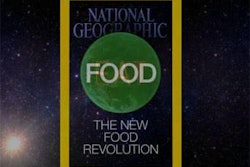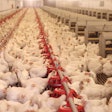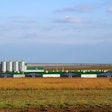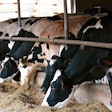Meat and milk produced in Britain would cost more, and reliance on cereal imports would increase if the U.K. grew more of its own crop protein for animal feeds, University of Reading research has found.
While up to half of all imported soya meal for animal feed could be replaced by home-grown equivalents, the result would be higher feed prices for dairy and meat farmers, and a reduction in cereal production, meaning the U.K. would have to import more grain from abroad.
The research, from the University of Reading’s renowned Centre for Agricultural Strategy (CAS), was carried out in response to calls to make the British livestock industry more self-sufficient in protein feed, much of which is currently shipped in from overseas in the form of soya meal. Environmental groups argue that some imported soya is produced at too high an environmental cost, particularly when grown on land cleared from rainforest or from plowing up traditional grassland habitats.
The research found that it would be technically feasible to substitute up to half of imported soya in manufactured livestock feeds, using temperate crops that can be grown in the U.K., such as peas, beans, lupins, and by the protein-rich residues from oilseed crushing and bio-ethanol production.
The in-depth findings, produced with a comprehensive survey of data from the commercial feeds industry, have been published by CAS in a report titled, “Replacing soya in livestock feeds with UK-grown protein crops: prospects and implications (CAS Report 19).”
Philip Jones, of the University of Reading, the lead author of the report, said: “Everyone would like to see Britain self-sufficient in meat and milk. But the reality is that we do not currently produce enough protein to feed the animals we already farm, so the more livestock we produce, the more protein we have to import from abroad.
“Our study shows that while it would be possible to replace up to half of imported protein in livestock diets with home-grown equivalents, this would result in higher livestock feed costs, which would make our livestock sector less competitive and result in higher meat and milk prices in the shops.
“The unfortunate fact is that there is no spare land in this country to produce more protein crops. So growing more protein crops would mean growing less of other types of crops, all of which also contain some protein. As a result, more protein crops would not mean more protein supply. In effect, more British protein feed will mean less British bread. The only solution is increased investment research to produce crops that yield more protein per hectare, so that we can produce more protein from the same area of land.”
The publication of this report comes at a time of intense debate on the role of soya in livestock feeds, driven by increasing feedstock prices, the growing dominance of GM soya, concerns over security of feeds supply and negotiations on the future direction of Europe’s CAP, including policies supporting domestic protein production.














